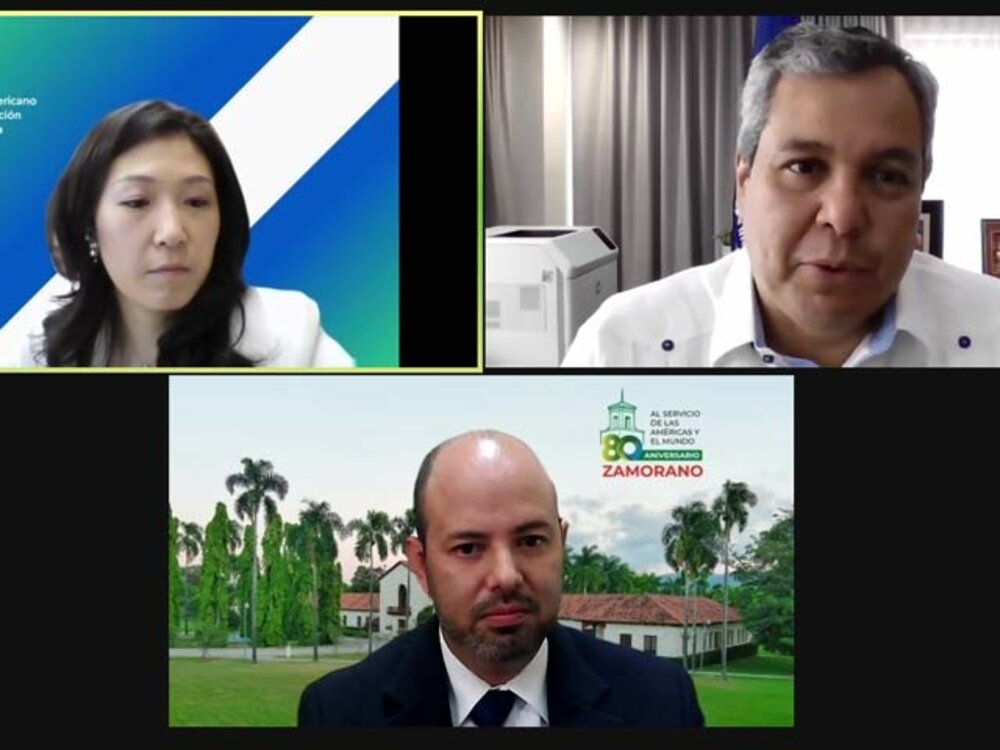CABEI launches a scholarship program to benefit more than 1,200 young people in the region through its Social Support Foundation

The innovative initiatives are the CABEI Bicentennial Scholarships for secondary education in nine countries, and the CABEI-Zamorano Foundation Scholarships for higher education in ten countries.
Tegucigalpa, February 11, 2022-. With the purpose of supporting access to education in line with its 2020-2024 Institutional Strategy, the Central American Bank for Economic Integration (CABEI) presented this Friday at a press conference two broad programs with which it seeks to benefit more than 1,200 young people in the region through its Social Support Foundation (FAS-CABEI).
These are the Bicentennial Scholarships and the CABEI-Zamorano Foundation Scholarships, programs that aim to guarantee access to secondary education, in the first case and higher education in the second, to low-income young people from Guatemala, El Salvador, Honduras, Nicaragua, Costa Rica, Panama, the Dominican Republic, Belize, Cuba and Colombia in the case of the CABEI-Zamorano Foundation Scholarships.
"We are pleased today to tell you about the work that FAS-CABEI carries out for the benefit of the region and these two important initiatives with which we seek to provide the necessary academic tools to the workforce of the future that we know will translate into development for our region, the Caribbean and Colombia," said CABEI Executive President, Dr. Dante Mossi.
"Our objective at FAS-CABEI is to promote social projects by providing financial support to young people with academic excellence who wish to complete their high school studies or specialize in agriculture, so that they have the necessary tools to do so," explained CABEI Social Support Foundation Manager, Jaejin Lee.
Bicentennial Scholarships
The Bicentennial Scholarship program is aimed at low-income students attending secondary school in CABEI member countries that make up the Central American Integration System (SICA) and Cuba and has a total cost of US$5.6 million during the 2022-2028 execution period.

